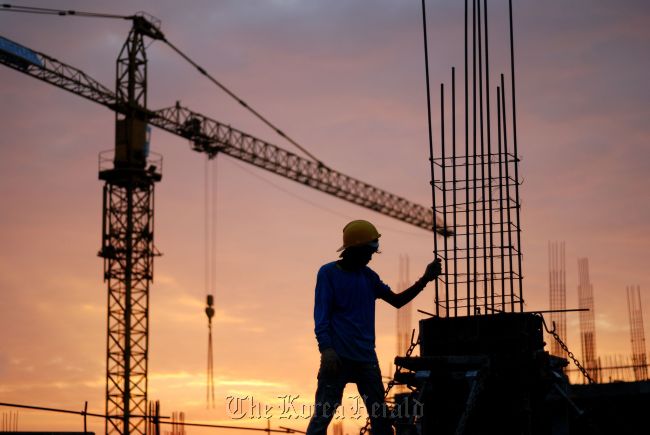
The nation’s major builders are turning their eyes to new markets as local demand has been contracting and overseas competition escalating.
Their mutual keyword for survival is diversification and specialization.
“Though the Middle East is still the largest overseas market, our long-term vision is to see beyond the present and to develop new potential,” said an official of Hyundai Engineering and Construction Co.
Last year, the company reclaimed its previous lead in the overseas construction contract market by recording $10.5 billion in total annual sales and $90 billion in cumulative sales since 1965.

The result was largely attributable to its successful entry into the Latin American region, which had been largely untapped potential for Korean construction firms, the official said.
“We also opened a series of in-house Spanish-language courses last year, all of which are highly popular among employees,” he explained.
“Those who excel in these classes are subject to special benefits such as additional points in their personnel evaluation or priority in overseas branches.”
Such moves reflected the message of CEO Jung Soo-hyun, who had earlier claimed that even engineering technicians should learn the language of the country in which they work.
Amid such growing enthusiasm, Hyundai E&C established its second South American branch in Venezuela last March.
Backed by these new facilities and networks, the company won two major deals last year in the South American region, in collaboration with Hyundai Engineering.
One of them was a $3 billion state-initiated contract to build and improve the oil refinery system in Puerto La Cruz, Venezuela. Hyundai E&C’s share in the project is $1.5 billion.
Daewoo Engineering and Construction, on the other hand, turned its eye to the African continent, especially the southern region below the Sahara Desert belt.
“We already have a tight grip over the North African market,” said a company official.
“Our key business vision this year is to expand such leverage southwards, into central Africa.”
Though the African market holds various obstacles ― geographic distance, tropical climate, and the lack of social infrastructure ― it also presents a variety of opportunities, especially as the impoverished states are heavily dependent on foreign capital and technology, he added.
Other underdog companies tend to rely on a select-and-focus strategy for survival.
Ssangyong Engineering and Construction made its way into the Singapore market, specializing in high-quality buildings and transportation.
The company won the most awards overseas among local builders last year for its high-quality designs and construction skills, according to the International Contractors Association of Korea. Especially, four of the awards were from Singapore, where it earlier had built the landmark Marina Bay Sands Hotel.
“Our focus is on higher value-added construction projects such as hotels, hospitals and subways,” said a Ssangyong E&C official.
“This is why we turned to Singapore instead of the plant construction market in the Middle East.”
Ssangyong E&C is also currently building a coastal highway and downtown subway in Singapore.
These efforts for diversification and specialization should be regarded as the firms’ long-term business investments, said an ICAK official.
“Overseas construction is still dominated by the plant-building deals in the Middle East, but companies are well aware that they need to back up their business with other alternatives,” he said.
“This is why Central and South America, as well as the southern African region, rose as a plausible option in the industry.”
By Bae Hyun-jung (
tellme@heraldcorp.com)









